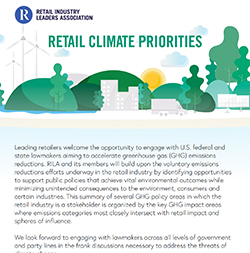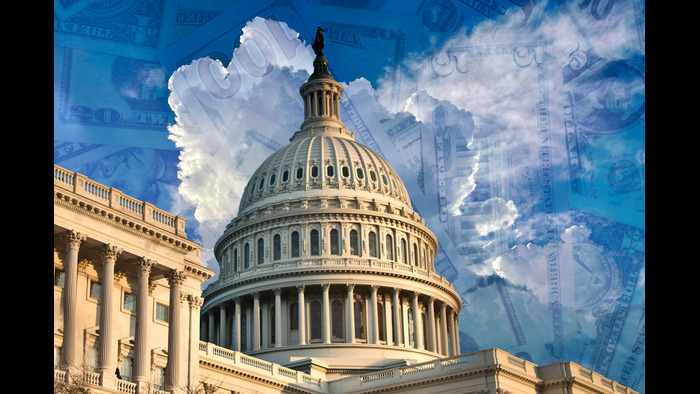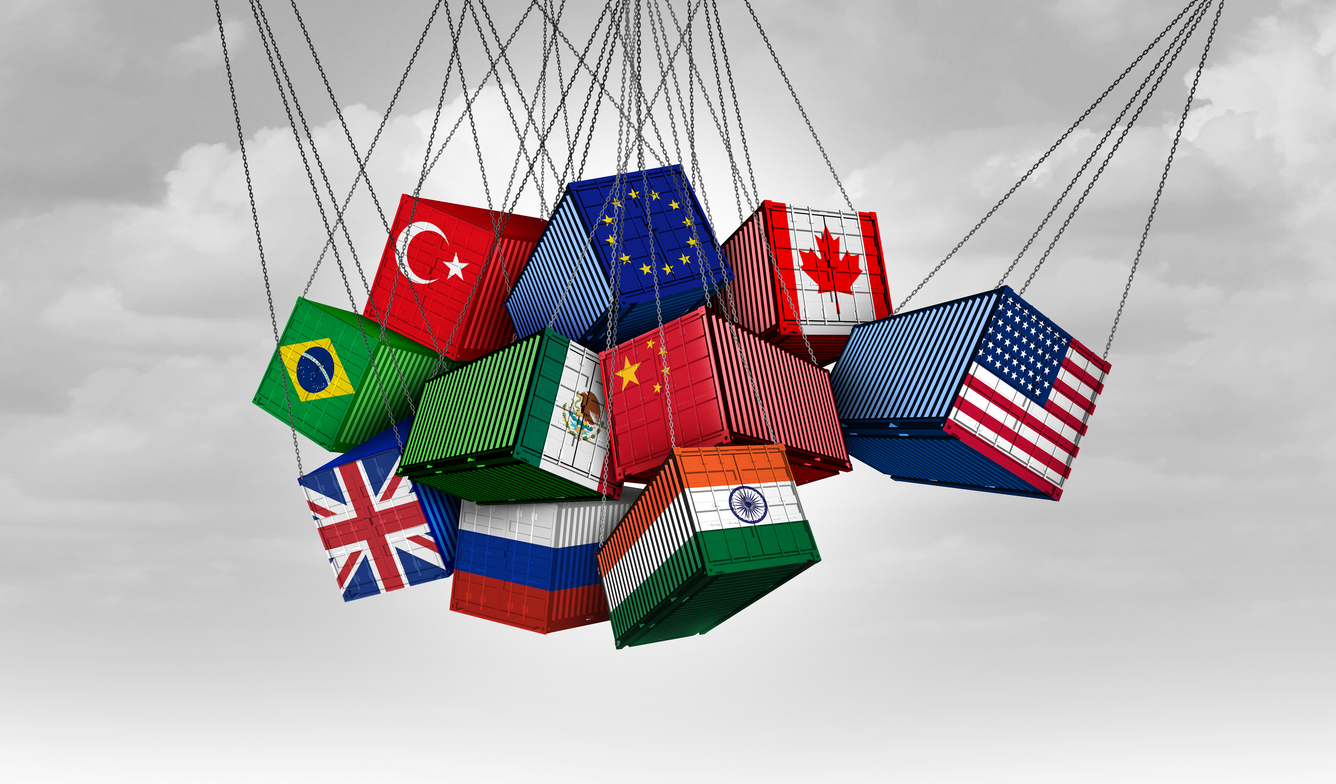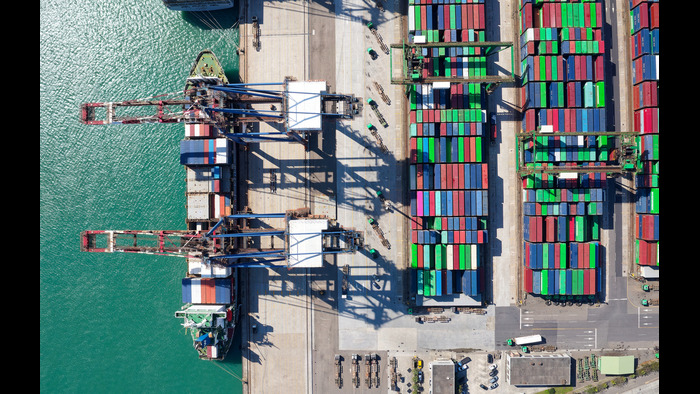- Home
- Focus Areas
- Sustainability / Environment
- Retail Climate Priorities
Climate Priorities
Climate change is a bigger threat than any one individual, company, industry, or government can address on its own. As the trade association of our country’s leading retail companies, RILA believes effective public policy has a critical role to play in protecting communities and economies globally from climate change’s most disruptive impacts. The United States should not shy away from its obligation to act.
We urge the Biden administration and Members of Congress to collaborate on bipartisan legislation that supports innovation, economic resiliency, and energy efficiency to help the United States prepare our economy and workforce to meet necessary emissions reductions.
Responding to the economic and moral imperatives of addressing climate change requires thoughtful and meaningful action. Leading retailers know the intricacies of navigating complex relationships and operational realities in the pursuit of sustainability. The retail industry is an ally in the fight against climate change and stands ready to partner with policymakers and provide constructive insights as we work towards achievable goals.

For a free copy of RILA's "Retail Climate Priorities," please complete the form.
Other Programs and Policy Drivers
Net Zero Emissions Targets
Achieving Net Zero emissions targets is contingent upon the policies implemented to achieve them, many of which are discussed in the Priorities. Importantly, these goals—especially if enforceable or binding—are likely to drive governments to adopt additional GHG control measures.
International Agreements
International climate agreements drive the development of domestic regulations designed to implement and achieve the corresponding international commitment. International agreements and cooperation are likely to expand in the coming years.
Agriculture & Forestry Sector Programs
Because many consumer products come from the agriculture and forestry—food, paper goods, tissue, lumber, etc.—the retail industry may experience indirect effects from related policy, and may also have opportunities to reduce emissions within supply chains.
Economy-wide carbon pricing measures
Latest on Climate and Sustainability

Retailers Champion Bill Aimed at Dismantling Organized Crime
- By [Michael Hanson]
- 04/10/2025
Retailers Urge Governor Bowman to Allow Lower Debit Rate
- By [Austen Jensen]
- 04/10/2025

Retailers Urge Ambassador Greer to Discuss Affordability
- By [Blake Harden]
- 04/08/2025
Congress can fulfill its duty by passing Trade Review Act
- 04/03/2025

Americans Cannot Afford Another Round of Price Increases
- By [Michael Hanson]
- 04/02/2025
LaBruno Named Exec. Director of RILA Communities Foundation
- 04/01/2025

Retailers Urge POTUS: Forgo Policies that Create Uncertainty
- By [Michael Hanson]
- 04/01/2025
Retailers Submit Comments Opposing USTR Shipping Proposal
- 03/24/2025

Product Safety Executives Discuss Leading Retail Issues
- By [Susan Kirsch, Luisa Lobo]
- 03/18/2025
Many products hit by more than one tariff
- 03/14/2025

RILA Urges USTR Caution in Use of Tariffs
- By [Blake Harden]
- 03/12/2025
Retailers urge President Trump to prioritize renewing TCJA
- By [Michael Hanson]
- 03/04/2025

